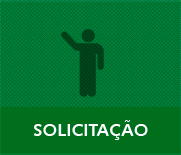Compartilhar:
Truth Commission recommends punishment for crimes committed during dictatorship
Criado em 23/05/13 12h14
e atualizado em 03/06/13 09h41
Por Luciano Nascimento e Luana Lourenço
Edição:s
Fonte:Agencia Brasil
Brasilia – The National Truth Commission (“Comissão Nacional da Verdade – CNV”), established to investigate human rights violations in Brazil that occurred between 1946 and 1988 (especially during the 1964-1985 military regime), released its first annual activity report this week. During a public hearing the CNV announced that it was recommending that members of the government (“agentes”) who are suspected of committing crimes during the military dictatorship (1964-85) stand trial (“ser responsabilizados judicialmente”). According to the CNV, the recommendation is based on international treaties dealing with crimes against humanity, torture and assassination for religious, racial or political reasons.
The coordinator of the CNV, Rosa Cardoso, declared: “It is natural for the commission to accept international human rights principles. Under these principles, crimes against humanity do not have statutes of limitation. It is our intention to forward these cases to international courts.” However, Ms Cardoso denied the commission was going to recommend a review of the 1979 Amnesty Law (“Lei de Anistia”). “Any proposal to review the Amnesty Law must come from the people (‘sociedade civil’),” she said.
In its report, the CNV repudiated the idea that torture in Brazil was a response to armed resistance to the military government that began in 1969. “Torture began before there was any armed resistance,” explained Heloisa Starling, a historian from the Federal University of Minas Gerais, who serves as a research assistant for the CNV. “Torture was practiced in army barracks, as a standard, long-standing practice in interrogations, as far back as 1964. It became widespread in 1969,” Starling declared.
The CNV also revealed that the Brazilian Navy concealed information about deaths that occurred during the military dictatorship.
For example, in 1993, then president Itamar Franco ordered the minister of Justice, Mauricio Corrêa, to gather information from the armed forces (“Marinha, Exército e Aeronáutica”) about people who disappeared during the dictatorship. Recently, the CNV discovered 12,072 documents in the Navy Center of Information (“Cenimar”) regarding 11 people who disappeared and crosschecked the information with data collected by minister Mauricio Corrêa in 1993.
According to the commission, one document they found in the Cenimar, dated December 1972, dealt with the death of a former federal deputy, Rubens Paiva. However, in 1993, the Navy had informed the government (“Congresso Nacional, Ministério da Justiça e Presidência da República”) in an “official version” that Rubens Paiva had escaped while in custody of the Department of Intelligence Operations and Center of Internal Defense Operations (“DOI-Codi”), in Rio de Janeiro, and that his whereabouts were unknown.
“A preliminary conclusion by the CNV is that the Brazilian Navy deliberately concealed information from the government (“Estado brasileiro”) at a time when the country was a democracy [that is, in 1993]. The importance of the Rubens Paiva document is that it shows that the other 12,000 pages of documents held by the Navy concerning 11 people who disappeared may elucidate what happened to them. We are making these documents public at this time,” declared Heliosa Starling.
According to the CNV, by crosschecking information furnished by the Armed Forces with documents obtained during the commission’s investigation, indications were found that the Navy hid dead bodies. “The Cenimar was one of the most brutal of the repressive institutions during the dictatorship. We have a long report with extensive details on what the Navy knew about these people. The fact is that the Navy knew that they were dead,” said Starling.
The commission report went on to say that through the use of political violence the regime was able to create a government (“Estado”) that operated by means of unlimited oppression. “Torture was the driving force of repression in Brazil. It led to systematic policies of assassination, forced disappearances and kidnappings,” according to Starling.
Detailed studies by the CNV found that just in 1964, some 50,000 people were arrested. Ships were turned into prisons and the CNV managed to identify 36 torture centers in 7 different states. Torture actually took place in some universities, such as the Federal University of Pernambuco (“UFPE”) and the Federal Rural University of Rio de Janeiro (“UFRRJ”). “We discovered that people were arrested on campus and that they were treated violently right on campus,” revealed Starling.
Starling went on to make a new revelation: she says the CNV is close to dismantling a central thesis of the military regime that has long held touchstone status in the narrative of the Years of Lead (”Anos de Chumbo”), as the dictatorship is popularly known: that the Armed Forces high command was unaware of torture being practiced. According to Starling, the commission has discovered an organogram showing that when the Codi was officially created in 1970 there was a direct line of communication and command that ran from it to the very highest levels of the Navy, Army and Air Force.
The evidence shows that the chain of command went straight to the Navy, Army and Air Force Information Centers (“Cenimar, CIE and Cisa”), which were directly linked to the military ministers. “It is unlikely that president (former general) Emilio Garrastazu Medici did not receive information from his most important minister, general Orlando Geisel, the minister of the Army,” affirmed Starling.
The CNV statutes allow it to clarify facts but it does not have punitive powers. It does have access to information produced by the Special Commission on Political Murders and Forced Disappearances, that issued a report 17 years ago, and the Amnesty Commission, that operated 11 years ago.
In its report of activities during the last year, the CNV registered testimony by 268 people who were classified as victims of the dictatorship, witnesses or agents of the dictatorship (the period between 1964 and 1985). A total of 207 people testified as either victims or witnesses of grave violations of human rights. Fifty-nine people testified behind closed doors and 148 testified during public hearings that were held in all parts of the country.
So far, the CNV reports that it has held 15 public hearings. During a recent hearing testimony was given by city councilman (“vereador”), Gilberto Natalini, now a member of the São Paulo Green Party (who was in prison for 60 days in 1972 and was tortured), and two men accused of human rights violations (“agentes da repressão”): Marival Chaves (a former sergeant who worked in the DOI- Codi) and Carlos Brilhante Ustra (a retired colonel who commanded the DOI-Codi 1970-74).
Another 35 people who were either directly involved in human rights violations or witnesses have been heard in closed hearings. The CNV has convoked 13 people to testify.
Among the achievements of the CNV is the investigation of the disappearance of former deputy Rubens Paiva, a new death certificate for Vladimir Herzog (a journalist who died in the DOI-Codi in 1975). A prior death certificate issued by the military regime said he committed suicide; the new death certificate says he died after being tortured. The commission is also investigating the death of former president João Goulart, Operation Condor and violations of the rights of Indians during the dictatorship.
Amnesty International (AI) has suggested that the CNV hold a public hearing with testimony by president Dilma Rousseff (who was arrested and tortured). AI has also suggested that Brazil could follow the example of South Africa and broadcast testimony on the radio and television. AI has said: ”… the Truth Commission is a unique opportunity for Brazil to break the pattern of human rights violations that continue to occur in the country.” And that the CNV final report should be used for legal proceedings that bring into question the 1979 Amnesty Law.
Editors: : Carolina Pimentel/Aécio Amado/Talita Cavalcante/Fábio Massalli/ Lícia Marques
Translation: Mayra Borges / Allen Bennett
Deixe seu comentário





